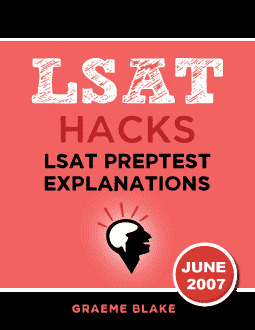QUESTION TEXT: Political candidates' speeches are loaded with promises…
QUESTION TYPE: Flawed Reasoning
CONCLUSION: Politicians won’t keep promises.
REASONING: Politicians have a selfish motive to make promises: they want to get elected.
ANALYSIS: The author is assuming that bad motives lead to bad actions. That’s silly. Bad motives can often produce good outcomes. E.g. People avoid stealing for the selfish reason that they don’t want to go to jail.
In this case, the politicians might keep the promises, for selfish reasons: they want to get re-elected. So a promise might be reliable even if it was selfish.
___________
- The author didn’t say this. Instead, they presumed “selfish ➞ reliable”
- This is a trap answer. The author didn’t say that politicians’ promises are never kept. Instead, they just said those promises are unreliable. Unreliable = might keep them, might not.
@Never@, by contrast, is very extreme. - This is a different flaw.
Example of flaw: Today is a warm day, so the warmth must be causing the sun to shine brightly. - CORRECT. See the analysis above. It’s possible that politicians often keep promises even when their promises were made for selfish reasons. (After all, those politicians may selfishly want to get re-elected.)
- The argument didn’t mention “worthy of the office”. We have no idea what makes someone worthy.


Leave a Reply